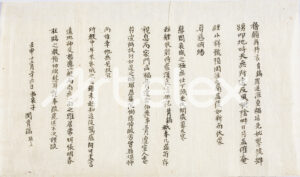Min Geung-ho (1865–1908) was a military officer of the Wonju Jinwi Unit during the Korean Empire period.
In 1897, he served as a commanding officer (Jeonggyo) in the Goseong Detachment of the Wonju Jinwi Unit and later transferred to the Chuncheon Detachment.
In August 1907, when Japan sought to disband the Wonju Garrison, Min led around 300 soldiers to attack the Wonju Post Office and Japanese police, engaging in a fierce battle for three hours.
Afterward, he reorganized his troops into smaller units and conducted guerrilla warfare across Jecheon, Juksan, Janghowon, Yeoju, and Hongcheon, inflicting significant damage on the enemy.
He closely cooperated with other Righteous Army leaders, including Yi Gang-nyeon, Heo Jun, Kim Gun-pil, and others, achieving notable victories, especially in the Gangwon-do and Chungcheong-do regions.
Min Geung-ho’s army grew in strength, becoming one of the most powerful forces in Gangwon-do, and they fought over 100 battles against the Japanese forces across Gangwon-do, Chungcheong-do, and Gyeongsang-do.
However, in February 1908, during a battle with the Japanese army, he was captured and transported to Gangnim. His men attempted to rescue him but were unsuccessful, and he was killed in the ensuing struggle.
For his contributions, Min Geung-ho was posthumously awarded the Order of Merit for National Foundation (Presidential Medal) by the South Korean government in 1962.

